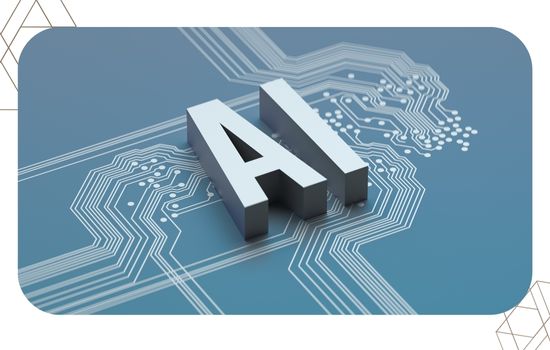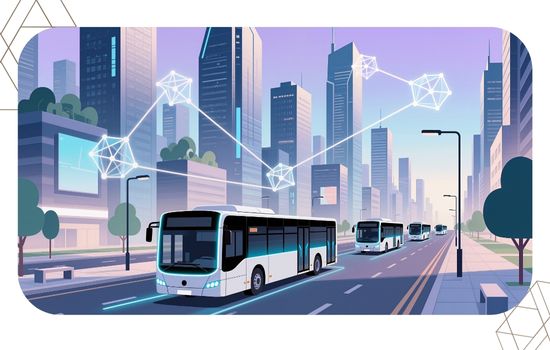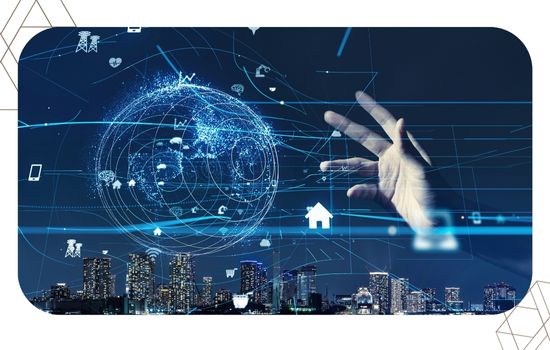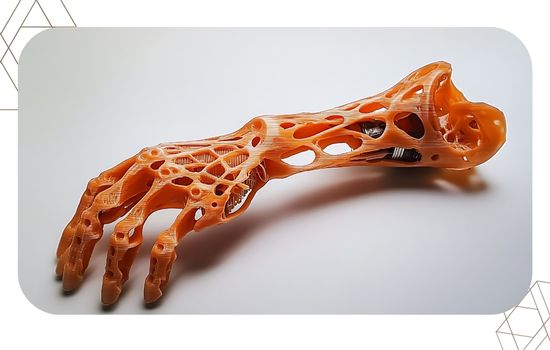Advertisements

The Surprising uses of AI in everyday life They are no longer a futuristic projection, but a tangible experience that shapes how we work, learn and relate.
By 2025, artificial intelligence will be integrated into everyday aspects such as healthcare, transportation, entertainment, and even home security.
This article offers a clear and in-depth look at how AI is transforming social and economic life, its benefits, and the challenges it poses.
Summary of what you will find in this article:
- Direct impact of AI on health and preventive medicine.
- How the way we consume culture and entertainment is changing.
- Its role in education and the personalization of learning.
- AI applied to the home and urban mobility.
- Ethical and trust challenges.
- Frequently asked questions about the everyday use of AI.
Health: more accurate diagnoses and early prevention
Medicine is among the fields that will benefit most from artificial intelligence. A 2024 World Health Organization (WHO) report indicated that AI algorithms reduce diagnostic errors in radiology by 20%.
Advertisements
This advance represents a direct impact on the lives of millions of patients.
In addition to diagnostics, AI is integrated into remote monitoring platforms that analyze data from smartwatches or medical sensors.
This allows cardiac abnormalities to be detected before they become emergencies.
A clear example occurs in clinics in Mexico, where predictive systems alert doctors to potential complications in patients with diabetes.
Prevention becomes a real ally in prolonging quality of life.
Education: Personalized learning within everyone's reach
Teaching is no longer limited to a classroom with a blackboard. AI powers digital tutoring that adapts content to each student's pace and level.
Instead of imposing a single plan for everyone, the algorithms recommend additional exercises or simpler explanations as needed.
For example, online learning platforms already have conversational assistants that explain math step by step or translate scientific texts into everyday language.
These tools don't replace the teacher, but they do free him or her from repetitive tasks so he or she can focus on guiding and motivating.
Inclusion is another important factor. Adaptive programs allow students with visual or hearing disabilities to access previously limited resources.
AI, when applied well, reduces gaps and opens up new possibilities for accessing knowledge.
Entertainment: Recommendations that seem to predict tastes
Streaming platforms use deep learning algorithms to suggest movies, series, or music with surprising accuracy.
These are not simple lists, but rather a detailed analysis of consumption patterns that allows us to anticipate what a person is likely to enjoy.
This level of customization creates the impression that the platform is "mind-reading." However, behind the magic lies a complex process of filtering and sorting.
The question is inevitable: are we free to choose or do algorithms decide for us?
Here, the need for balance arises. AI offers convenience, but it can also limit cultural diversity by showing only what matches pre-existing tastes.
The challenge for 2025 is to use this technology to broaden horizons, not to pigeonhole.
Smart homes: from energy savings to security
The Surprising uses of AI in everyday life They are also reflected in domestic life. Virtual assistants activate lights, adjust the temperature, and suggest recipes based on the food available in the refrigerator.
In security, cameras with facial recognition detect unusual movements and send real-time alerts to the owner.
An original example is that of families who use intelligent systems to recognize the routines of older adults who live alone.
If an abnormality is detected—such as a lack of movement for hours—an immediate notification is sent to caregivers.
Beyond convenience, these innovations promote a more sustainable lifestyle. Algorithms manage electricity consumption and reduce costs, while also contributing to the reduction of polluting emissions.
Mobility: smoother traffic and autonomous transport
21st-century cities face a growing challenge: mobility.
In this area, AI plays a central role by optimizing public transport routes and controlling smart traffic lights that adapt to the flow of vehicles.
Mexico City, for example, implemented pilot projects where AI analyzes real-time data from cameras and sensors to reduce congestion on main avenues.
The result is more agile traffic and a significant reduction in travel time.
Autonomous transport is making steady progress. Although still in the testing phase, driverless buses in closed corridors already show enormous potential for improving efficiency and reducing accidents.
Trade and finance: faster and more secure decisions
The financial sector also benefits. Artificial intelligence detects fraud in seconds and offers personalized investment advice.
On e-commerce platforms, algorithms suggest products based on previous purchases and market trends.
An interesting case is that of small stores in Mexico that, by integrating AI solutions, are able to efficiently manage inventory and anticipate demand.
This prevents losses and allows us to offer more competitive prices.
Key Statistics: Growth of AI in the Global Economy
According to PwC, artificial intelligence could contribute up to $15.7 trillion to the global economy by 2030.
Although this figure is looking to the future, the impact is already being felt: companies of all sizes are using AI as a driver of productivity and competitiveness.
Analogy: AI as a smart mirror
A simple way to understand AI is to compare it to a mirror that not only reflects, but also interprets. Imagine standing in front of a mirror that, in addition to showing your image, advises you on what to wear based on the weather, your schedule, and your mood.
That's the difference between a traditional tool and AI: it interprets and acts accordingly.
Table: Areas where AI impacts everyday life
| Area | Main benefit in 2025 |
|---|---|
| Health | Rapid diagnostics and personalized prevention |
| Education | Adaptive and accessible learning |
| Home | Intelligent energy management and security |
| Mobility | Traffic reduction and autonomous transport testing |
| Finance | Fraud detection and personalized advice |
| Entertainment | Precise recommendations and immersive experiences |

Read more: Artificial Intelligence in 2025: How It Is Changing Society
Ethical challenges: trust and privacy
Not everything is positive. The everyday use of AI raises ethical questions. Who controls personal data? How can we prevent algorithms from reproducing social biases?
Laws are advancing slowly compared to the speed of innovation. The European Union already has a specific regulatory framework, while Latin American countries, including Mexico, are discussing proposals to ensure transparency and data protection.
The challenge lies in striking a balance between harnessing the potential of technology and ensuring privacy and equity.
Conclusion
The Surprising uses of AI in everyday life They show that this technology is no longer exclusive to laboratories but is now integrated into healthcare, education, homes, mobility, and entertainment.
Its benefits are clear, but it also raises ethical dilemmas that must be resolved responsibly.
The key is to embrace artificial intelligence as an ally, not a threat, and to build a future where technology serves people.
Read more: Apps to speed up your smartphone
Frequently Asked Questions (FAQ)
1. What benefits does AI offer in everyday life?
From more accurate medical diagnoses to energy savings at home, AI is facilitating processes and improving quality of life.
2. Will AI replace human jobs?
It replaces repetitive tasks, but also creates new professions in programming, data analysis, and technology ethics.
3. How does it impact education?
It enables personalized learning, digital tutoring, and inclusive access to content.
4. What risks does its use entail?
The main ones are the loss of privacy and the possibility that algorithms reproduce social biases.
5. How does it influence urban mobility?
Optimizes traffic lights, transportation routes, and promotes autonomous vehicle testing.
6. Is it regulated in Mexico?
Initiatives inspired by European models, focusing on transparency and data protection, are currently being discussed.
7. Does AI in entertainment limit cultural options?
If left unregulated, it can pigeonhole users; when properly applied, it expands the diversity of content.



